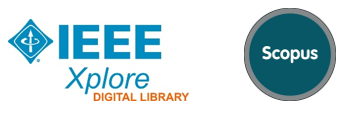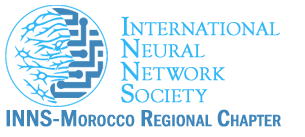
Pr. Mohamed DAOUDI
IMT Lille Nord Europe, France
CRIStAL (UMR CNRS)
Title : "Analyzing and Generating Humans"
Abstract :
The past few years with the advent of Deep Convolutional Neural Networks (DCNNs), Generative Adversarial Networks (GANs) and Variational Autoencoders (VAEs), as well as the availability of visual data it was shown that it is possible to produce excellent results in very challenging tasks, such as face recognition and generation of highly realistic faces, heads and bodies. In this I will present the rapid progress that has been made in less than two years as well as discuss many remaining research challenges to be addressed. I will touch upon how VAEs and GANs can generate 3D human.
Biography: :
Mohamed Daoudi is a Full Professor of Computer Science at IMT Lille Douai and the Head of Image group at CRIStAL Laboratory (UMR CNRS 9189). He received his Ph.D. degree in Computer Engineering from the University of Lille (France) in 1993. His research interests include pattern recognition, shape analysis and computer vision. He has published over 150 papers in some of the most distinguished scientific journals and international conferences. He is Associate Editor of Image and Vision Computing Journal, IEEE Transactions on Multimedia, Computer Vision and Image Understanding and Journal of Imaging. He was the General Chair of IEEE International Conference on Automatic Face and Gesture Recognition, 2019. He is Fellow of IAPR and Asia-Pacific Artificial Intelligence Association (AAIA) and IEEE Senior member.

Pr. Richard DURO
EPS, Universidad Coruna, Coruña,Spain
Professor in the area of Computer Science and Artificial Intelligence
Title : "Intrinsically Motivated Open-ended learning in Robotics: focusing on what is worth learning in an extremely large data field."
Abstract :
This talk reviews a series of ideas for exploring and learning in data intensive environments that can be extracted from the current research on intrinsically motivated open-ended learning, and the cognitive architectures that support it, within the developmental robotics field. The main objective of this research is to provide a principled approach to defining what designers want from robots as well as a series of mechanisms that allow for an appropriate balance between exploration in order to learn and become more proficient, and exploitation, that is, achieve the purpose set by the designer. A motivational engine that was developed by our group during the European DREAM project will be described and that will serve as a driving element to introduce memory units, attention systems and other cognitive structures that, through their interaction, will allow a robotic system to progressively and in an unsupervised manner address increasingly complex problems. All of these ideas will be illustrated using several examples and experiments carried out on real robots.
Biography: :
Richard J. Duro is a Full Professor of Computer Science and Artificial Intelligence at the University of Coruña in Spain and the Coordinator of the Integrated Group for Engineering Research at this university since 1999. He received a PhD. in Physics from the University of Santiago de Compostela, Spain, in 1992, with work related to novel instrumentation systems in a collaboration with San Diego State University and the University of California San Diego where he did post-doctoral work. His teaching and research interests are in intelligent systems and autonomous robotics and his current work concentrates on motivational systems and developmental cognitive robotic architectures. Dr. Duro has published more than 250 articles in refereed journals, edited books, and refereed conference proceedings, and co-authored 8 books. He is also the holder of 6 patents and 35 software registers. He is a Senior member of the IEEE and is currently a member of the Board of Governors of the International Neural Network Society (INNS) and its Vice president for Conferences and Technical Activities. He has been the Principal Investigator of more than 20 publicly funded research projects and over 100 contracts with industry.
- For more information you can contact :
icds@usmba.ac.ma



